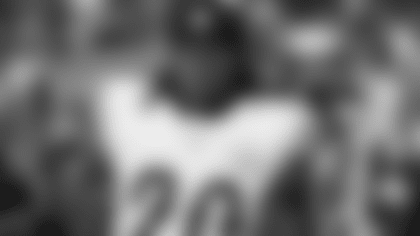**
Q. About four minutes into the fourth quarter of the Raiders game, a touchdown pass to Jesse James gave the Steelers a 14-point lead, 35-21. How does the game change at that point for the team in the lead?**
A. Really from a mentality standpoint, not much. When you're playing with a 14-point lead, you want to control the clock if you can and run the football. But in today's NFL you can't take your foot off the gas. You can't play not to lose. That's the type of attitude I try to instill in our group. Obviously, it wasn't perfect (against the Raiders), but we were able to get out of the stadium with a win.
Q. Generally speaking, in terms of strategy, what goes into protecting a lead in today's NFL?
A. I don't think that mentality is part of today's ball, to be honest with you. I think you just have to continue to do what you do. You acknowledge that you have to run more of the play-clock down, and you handle that exclusively with your quarterback. It doesn't necessarily involve others. You have to make the opponent still defend the whole field, both vertically and horizontally. That's just how we play today, and I think that's how everyone in football plays today.
Q. Is there a point in a game when based on the margin on the scoreboard and the time remaining in the game, where the clock becomes your primary opponent?
A. Certainly there are instances in games where the clock is a significant factor, but probably the most significant factor is your quality of execution and play, and I try not to get too far off that discussion.
**
The Steelers grant the wish of a young Steelers fan from Pottsville, PA




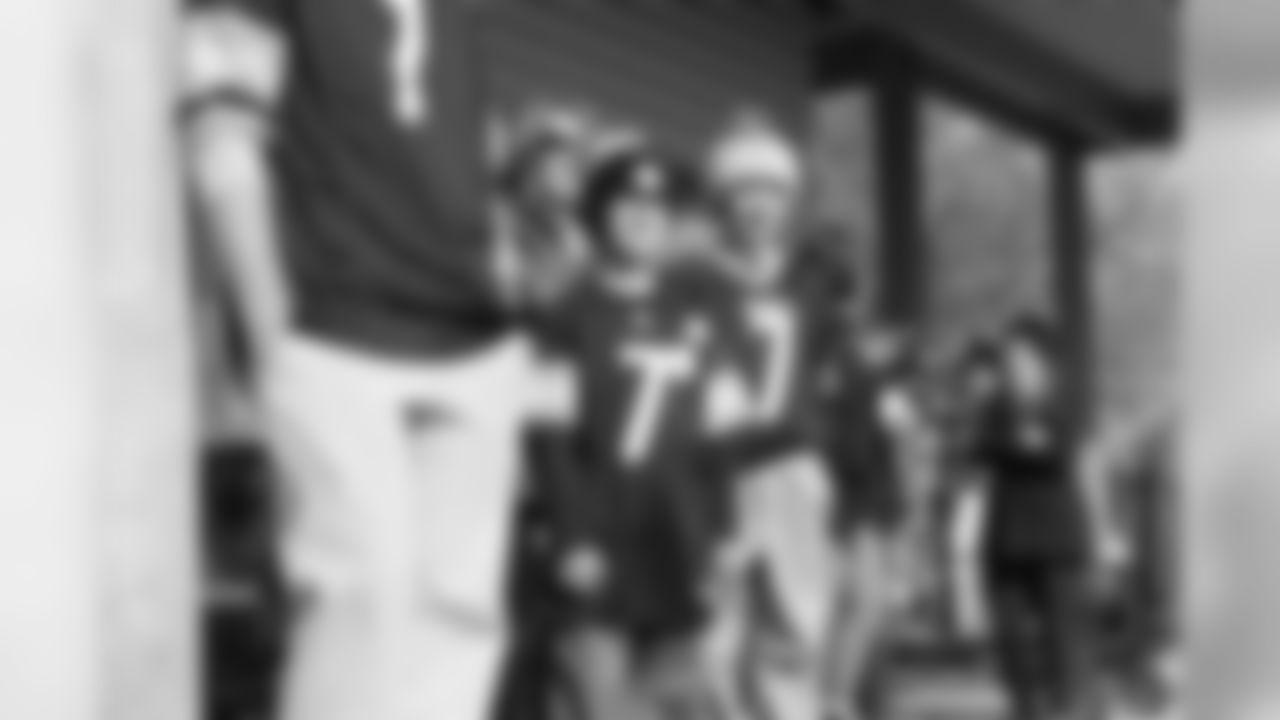

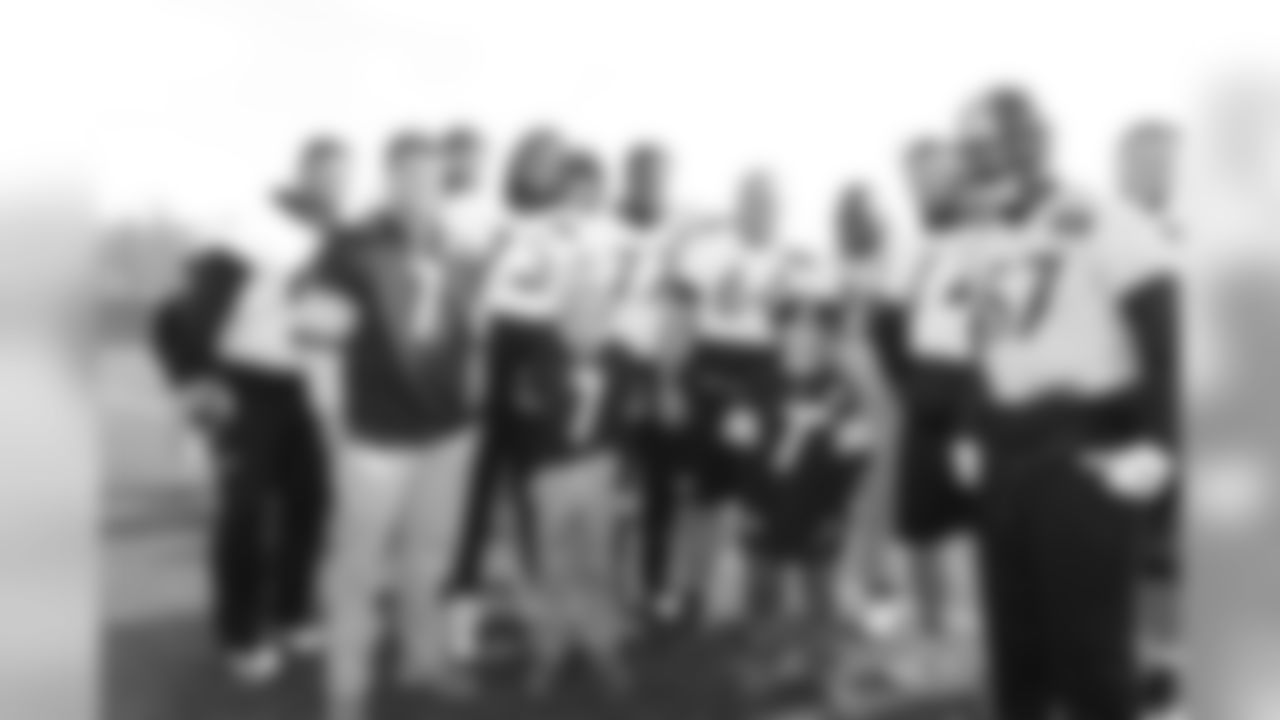
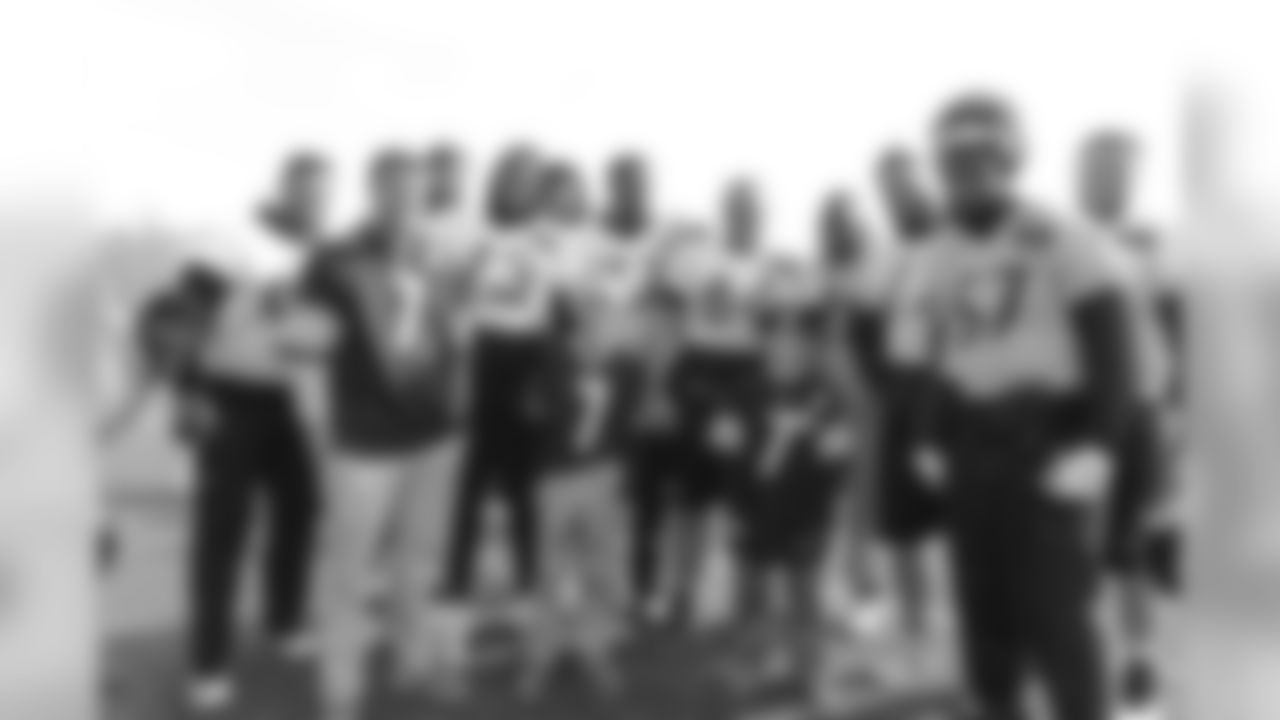

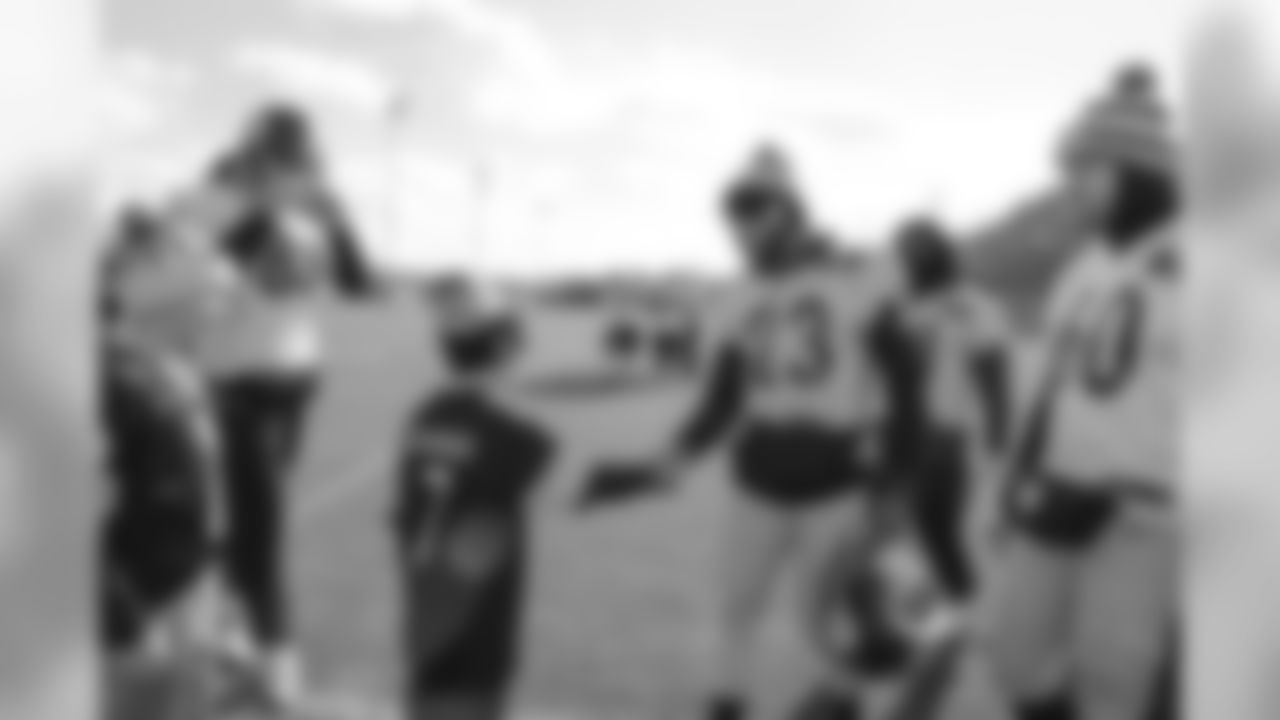
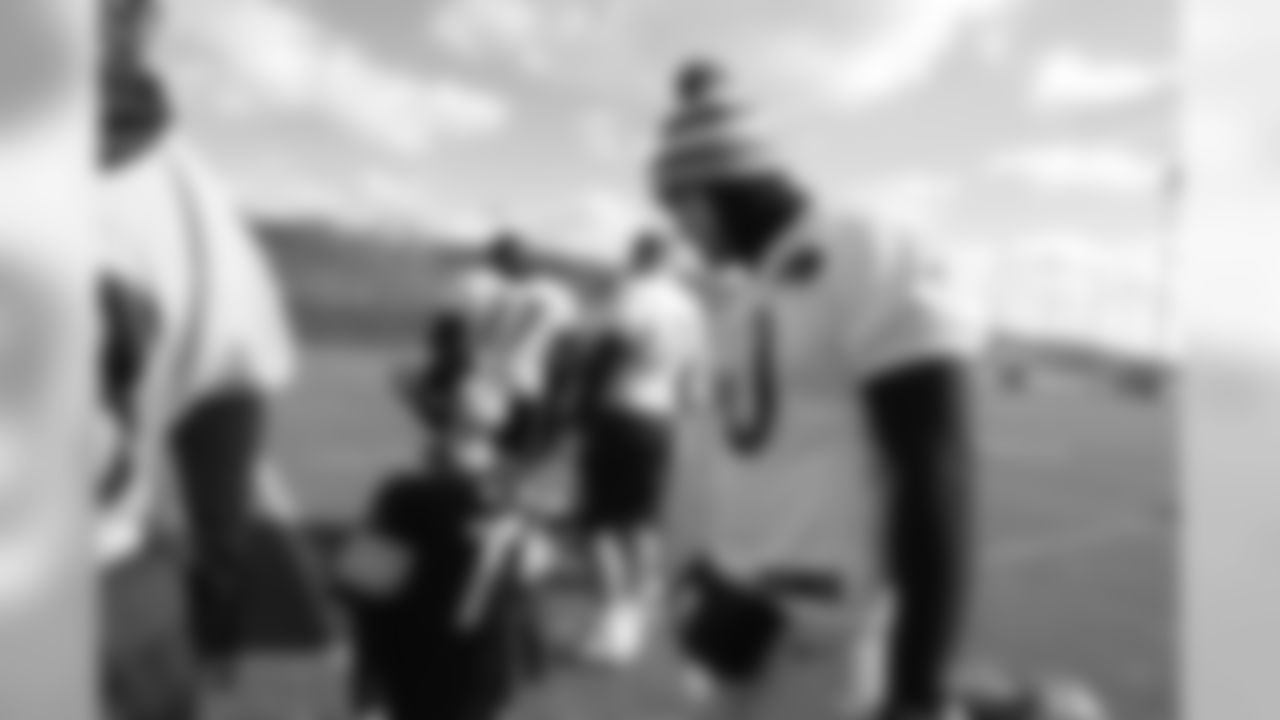




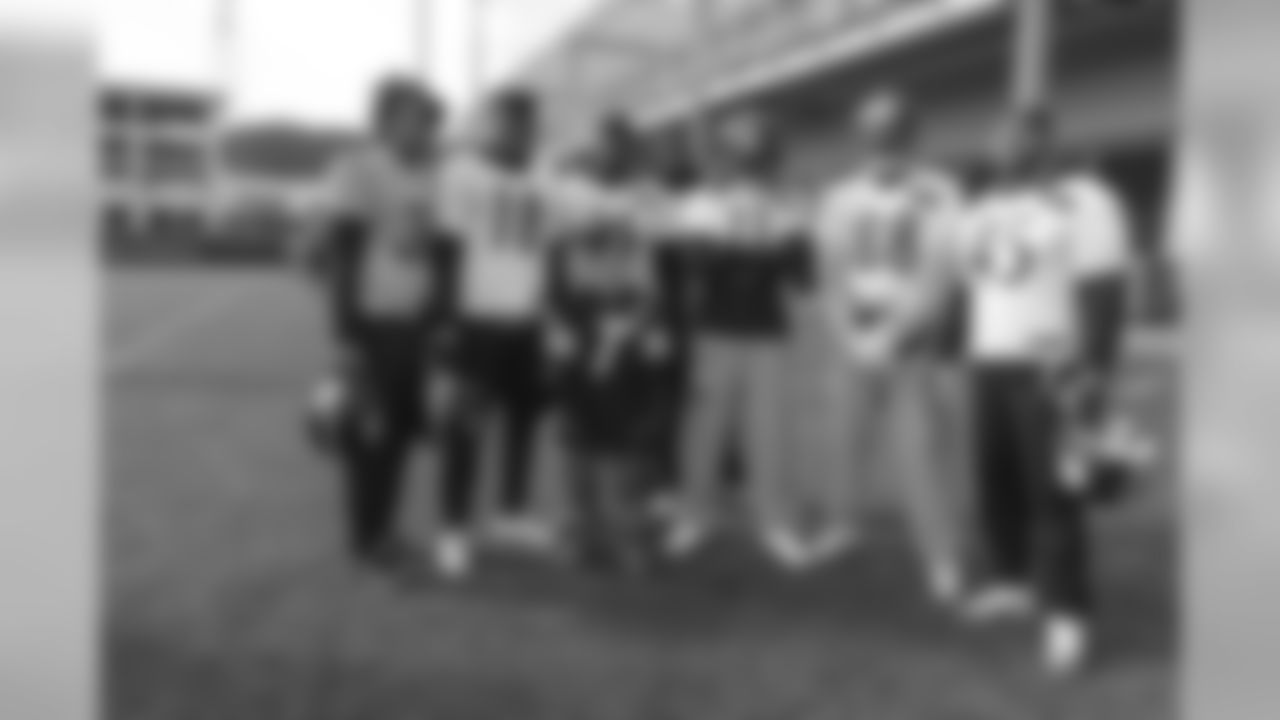
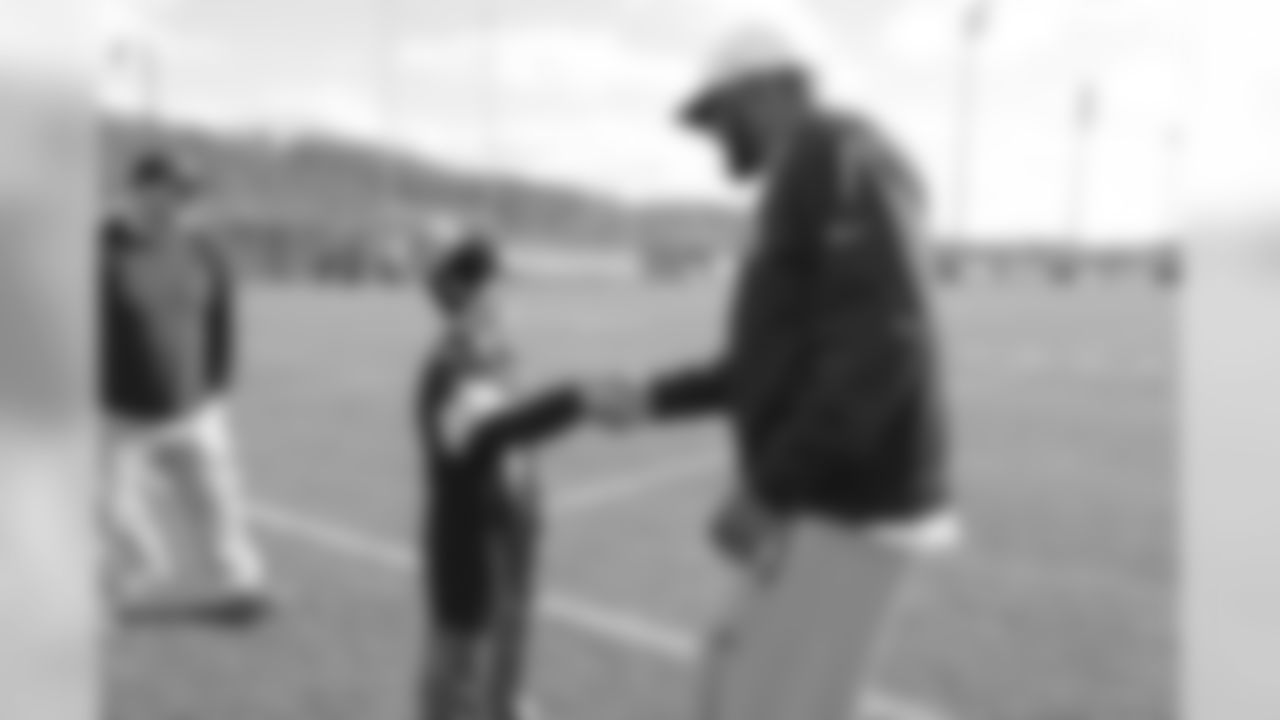
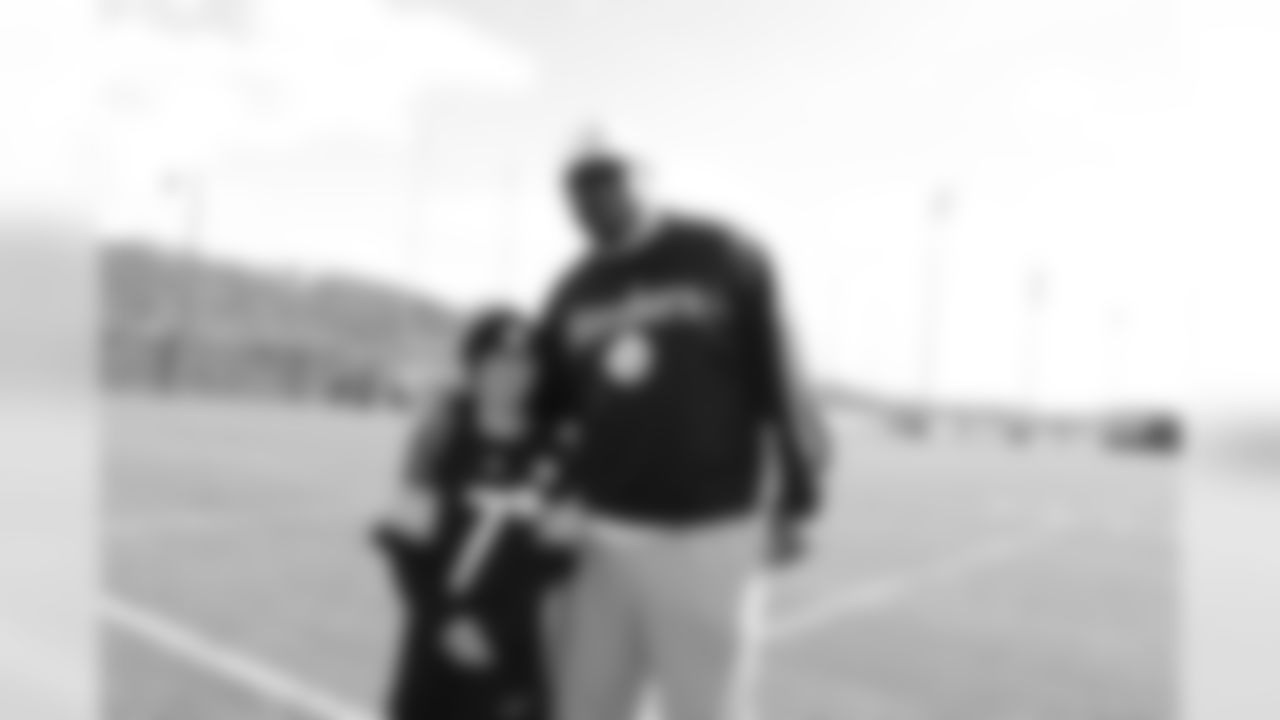








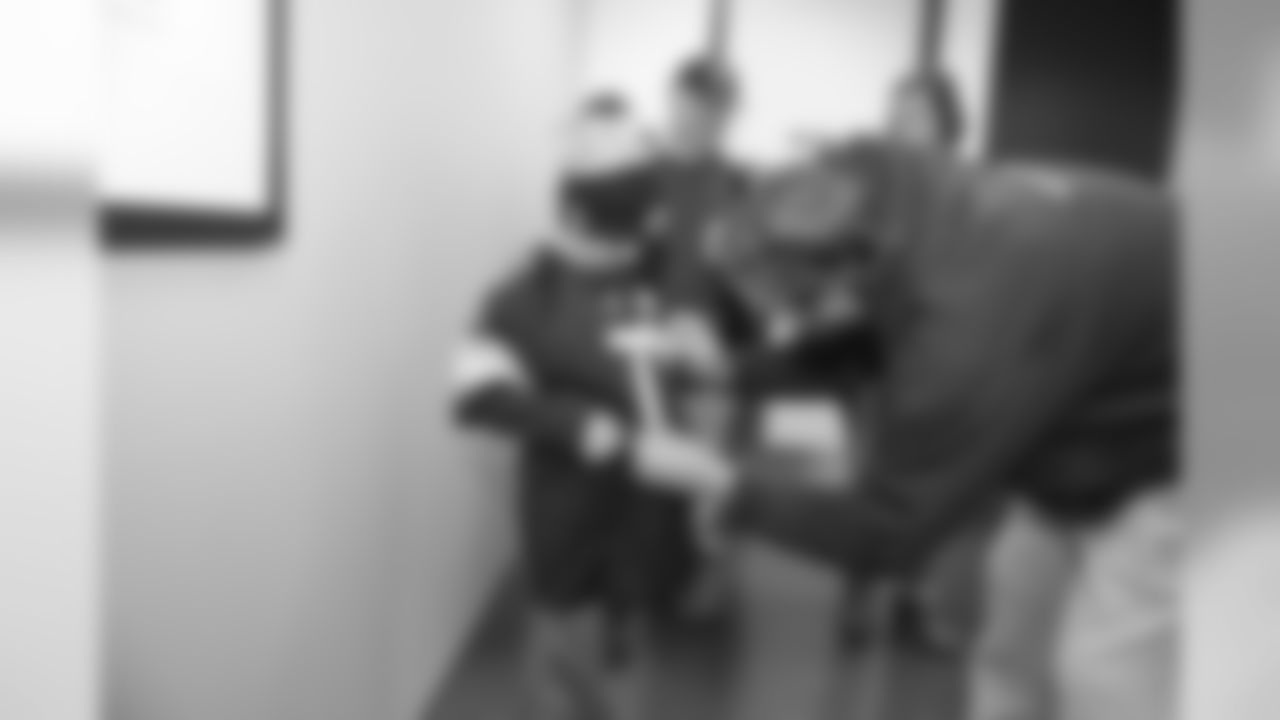





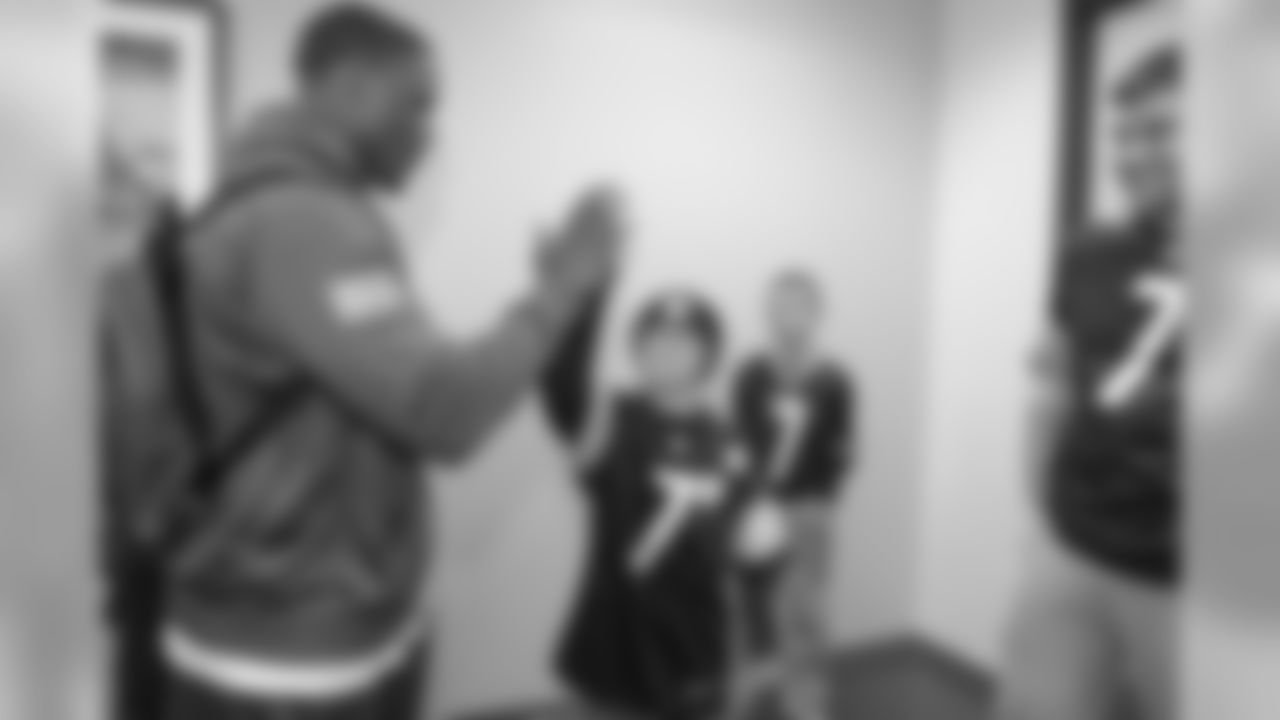
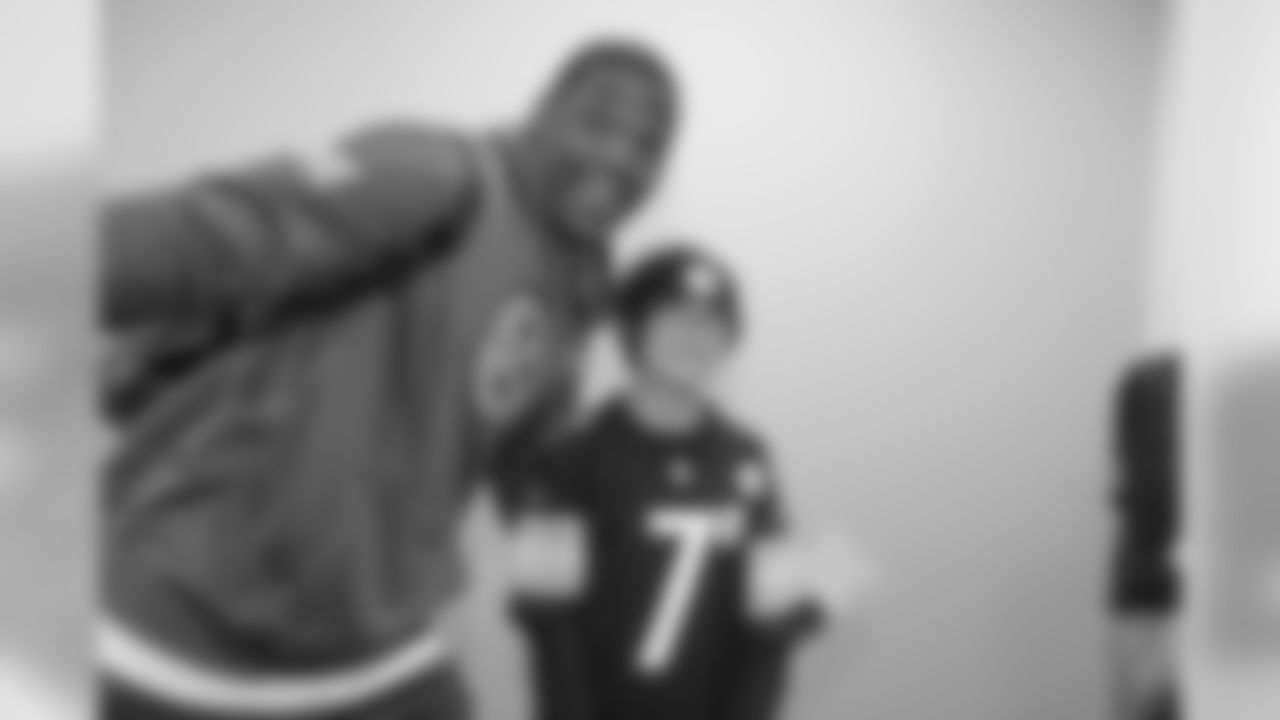








Q. Last week when you were asked what you were looking for from your team against the Raiders, you said, "When Ben was down – particularly in the games when we were successful – we made a conscious effort to take care of the ball even at the expense of being dynamic offensively, or even being interesting." Can you explain in a little more detail what you meant?**
A. That often times, if you take care of the ball you're going to put yourself in position to win. So, punting is not a negative thing. That's what I mean. Even if we need to step outside of our personality in terms of stretching the field and attacking in an effort to safeguard protection of the ball, I'm willing to do that, particularly when we don't have some of our key components, like we didn't in some of those circumstances.
Q. For a quarterback, what is the process for protecting the football in the passing game, because in the NFL holding the ball to make sure before you throw it can lead to interceptions, too.
A. It's about playing situations and not taking unnecessary risks. First and second-down ball is one thing, and third-down ball is another. All I ask in terms of protection of the ball is to be smart on first and second downs. I understand that calculated risk-taking is part of possession downs, and I don't want them to live in their fears in that regard. But what I don't want to do is take crazy or radical chances on first or second downs.
Q. What would be examples of that?
A. Throw the ball away, as opposed to trying to create or make something happen, extending plays and so forth. Not necessary. Not a necessary element of first and second-down football.
Q. Is there such a thing as targeting a particular receiver too much in a game?
A. No. I just think you play ball if a guy is getting open, particularly if the defense isn't doing anything unconventional. The Raiders, we know how they play. They play man-free football, and they've always played man-free football ever since Willie Brown and those guys were back there covering, so the fact we were throwing the ball a lot to Antonio Brown was irrelevant to them, so the number of targets was irrelevant to us.
**
Q. In basketball, it's easy to feed the shooter who has the hot hand. Are NFL passing plays designed to get the ball to a particular individual, or does everything come down to what the quarterback sees once the ball is snapped?**
A. When you're playing the type of coverage the Raiders play, it is like basketball. They play man-free coverage, and they put Charles Woodson in the middle of the field. Charles Woodson is responsible for the quarterback, so everyone else is essentially playing man-to-man, much like basketball, so you keep feeding him like he's Jordan.
Q. When a guy is having the kind of game Antonio Brown was having against the Raiders, are you seeing from the field that they couldn't cover him?
A. They were covering him. It's not like he was wide open, but they weren't covering him well enough to prevent him from catching the football. That's what it's about. There's "open," and then there's "NFL open." Those of us who are in football know the difference.
Q. Understanding that physical, aggressive, legal play is what you want from all your defensive backs, but are big-hits in the passing game a particular part of a free safety's job description?
A. Very much so. Intimidation is an element of the game. Physicality is an element of the game. It's difficult to measure, but you acknowledge that it exists, much like momentum is something you know exists in sports, but other than the scoreboard, how do you measure it? Physicality, the art of intimidation is an element of the game, and every good centerfielder I've been around at least, is capable of making it a factor.
Q. Describe to me what you would consider the perfect on-field demeanor for an NFL free safety?
A. The above-the-neck game is the biggest element of it. The ability to diagnose, to understand situational football, to reduce the potential of what they could see based on the circumstances of the game. I just think that's a big element of it. Offenses go into games with 120-125-play menus, but they don't run those 125 plays in every circumstance. A guy who is capable of being able to reduce that menu in an instant, based on circumstance, thus being able to reduce the number of things he has to defend allows him to make the type of plays and take the calculated risks that are associated with covering the amount of grass that's back there.
**
Q. What about his regard for his own body and the bodies of those who might come into his area?**
A. That goes without saying. That's an element of it, but I thought I wouldn't mention it because all the great ones care very little about their own physical well-being and even less about their opponents'.
Q. What was involved in the process, dating back maybe all the way back to 2010, in re-teaching and then the players re-learning how to be physical in the secondary without drawing penalties or fines?
A. Let's be honest: it's a generational thing. Most of the guys who had an issue with the player-safety initiative are now retired. And the kids who are playing now grew up in it. That's what happens in sport. You learn a lot of lessons regarding the games you play at a very young age. And those guys who were around 7, 8, 10 years ago who had to adjust to that emphasis, that was a difficult adjustment. Many of them couldn't make that adjustment, but time heals all wounds. Most of those guys are in TV studios or selling real estate these days, and there's a new generation of player who grew up in high school understanding what targeting is, what a defenseless receiver is, and so forth. Those guys are now in their early-20s and they play in the National Football League, and so it's a non-issue.
Q. What about the coaches?
A. That's not a tough sell at all. We as coaches are singularly focused on winning, and part of winning is playing within the rules of the game and teaching within the rules of the game to give yourself a chance to win. Playing is another thing. A lot of playing is innate, reaction. Guys have been doing that since a very young age, and I think that's what was difficult about the player-safety initiative from a veteran player standpoint.
Q. Fans want the coach to be angry at players who celebrate big hits or big plays, fans view that as a lack of discipline. What is your take on all that?
A. It just depends on the circumstance. You can't paint with a broad brush. Sometimes you have to understand the circumstances of the moment. Often times a fan's perspective depends on whether they like that player or not. And that's the reality of it. I've seen a lot of amnesty given to guys who don't deserve it because they're likeable.
Q. Where is your line drawn with this kind of stuff?
A. On game day, it's time to play. I teach and evaluate and critique on Monday. That's always my mentality. You'll never see an overreaction from me regarding anything of that nature on game day because I respect the fact those guys have to play.
Q. From the view of the opponent, what's the difference between Josh McCown and Johnny Manziel?
A. I think it starts with age and experience, more than anything. You see veteran savvy-like things from Josh. He'll look guys off. He'll work the middle of the field. He can manipulate zone coverage with his body language and mechanics. Quite frankly, you're just not going to see that from a young guy, and Johnny Manziel is a young guy. Those guys tend to look where they throw, and things of that nature. I think that's the significant difference. Forget playing styles, forget physical characteristics or traits. You know what those are. I'm talking about how a guy sees the game, or manipulates it. That's going to be different because of the age and experience of Josh.
Q. What about the improvisation factor?
A. I really don't worry about it. You've seen the result be positive, and you've seen the result be negative. For me, it's more about how we play, and the quality with which we play. It's less about who's playing for them, or whom they're choosing to play.
Q. How do you see today's game unfolding?
A. It's going to be about the run game on both sides. It really is. Our ability to run the ball, our ability to stop the run. We weren't able to stop the run against them a year ago. You can say they're not effectively running the ball this year largely, but they didn't effectively run the ball largely last year. But they ran the ball effective against us. We have to stop the run. We have to have balance on offense, and balance is being on schedule. DeAngelo Williams has to do the job for us, and we have to open run lanes for him.




